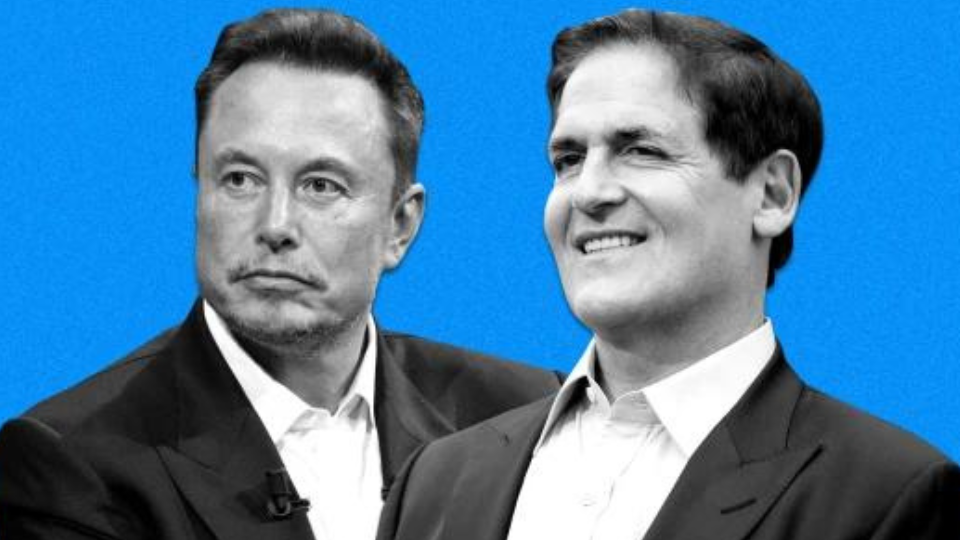
Click on the play button to listen to the audio version.
If you have been following the news on the recent resignation of the President of Harvard over her unfortunate congressional testimony on antisemitism on college campuses, you might have read Bill Ackman’s post on X (formally known as Twitter) which essentially blamed everything on Diversity, Equity and Inclusion (DEI) policies on college campuses. Ackman’s post was reposted by none other than Elon Musk, the owner of X, who wrote, “DEI is just another word for racism. Shame on anyone who uses it”. Musk’s over-the-top response prompted Mark Cuban to jump into the conversation by defending DEI and calling it smart business. Cuban has since challenged Musk to a debate on the subject.
I have been a critic of DEI which I think has been poorly executed. However, equating DEI to racism is ridiculous. I will withhold my personal views on Elon Musk and instead focus on the issue of DEI in more wholistic terms.
At the center of Ackman’s DEI manifesto on X is the notion of “equality of outcomes” versus “equality of opportunity”. It’s an important distinction and a fair issue to debate. It’s whether we define equality as a society in which everyone, regardless of status or background, has an equal chance to succeed (hence, equality of opportunity), or in which, all things being equal, one group is consistently less successful than other groups. In the latter case, we can assume there must be some biases within the system (equality of outcomes).
Ackman claims he supports equality of opportunity and provides proof of this by highlighting how his firm has supported smaller banks (well, ok), but Ackman calls policies that strive for equality of outcomes anti-American. In this regard, he is not totally wrong. A society that requires equality of outcomes at all costs, is not capitalistic, because it disregards innovation, risk, and hard work. But things get muddy when determining how to deal with the difference between the two in practice.
I agree that the idea of a society that is equal in terms of opportunity for all is the correct goal. However, does that mean we shouldn’t consider outcomes at all? We know that some people are born poor and others are born rich. Some are born sick and others are healthy. We know that it wasn’t too long ago that it was legal to preclude minorities from certain jobs, housing, or bank loans, and the remnants of those policies still exist today. So how do we define equality of opportunity and where do we draw the lines?
Musk and Ackman were both born into wealth and privilege. They both attended Ivy League schools and have had access to every possible resource available. So whether it’s intentional or because they lack certain life experiences, they both fail to address the complexity of the issue fairly and as the intelligent adults they are.
Here is my take; whether it is attainable or not, the goal should be to create a society of equal opportunity. However, if we are truly committed to that goal, then we must also realize that a review of outcomes is the most dependable metric we have available to us, and therefore it should always be part of the analysis.
On the subject of DEI, Mark Cuban says, “If companies aren’t smart enough to realize that diversity is good business, then great, there will be more talent out there for me”. Good for Cuban, but diversity does have broader implications for America. As our country, especially our workforce, is becoming increasingly diverse, it doesn’t take a genius to see that if our diverse communities are not thriving economically, America’s leadership in the global economy will be at risk.
When it comes to corporate America, no company can be expected to sacrifice talent for diversity goals, but companies must recognize that there are artificial barriers that are difficult to break. I have come to learn that most industries are to a large degree what I describe as self-selecting. For example, if you ask 100 people how they got into the real estate industry, the most common answer you’ll get is that someone they know invited or recruited them and someone along the way mentored them. The same is true for some of the most prestigious industries like private equity, venture capital, tech, and wealth management. People hire and promote who they know and from circles they trust.
Large companies frequently communicate about culture, values, and fit when they discuss hiring goals and practices. The fact is that people feel more comfortable around people who look and act like them. It’s human nature. The spirit of DEI should be to encourage companies to break those cycles, not by lowering the bar, but rather by widening the window. But here is the catch- outcomes matter. When the initiatives that companies create to improve diversity don’t produce the desired outcomes, they need to analyze, review, and come up with a new plan.
I have to admit that when Ackman and Musk turned the controversy stemming from the congressional testimony of three college presidents into an all-out assault on diversity initiatives and a diatribe of the perils of reverse discrimination, I was pretty disconcerted. Ackman, at least attempts to express his views intelligently whereas Musk, given his brilliance, seems amazingly limited to inflammatory sound bites and self-important proclamations. Nonetheless, I was surprised by both of them. I guess it’s a lesson that nobody gives up power without a fight.
The fact is, the issue of diversity is not going to go away, but racial tensions need to end. Perhaps the first step is framing the issue of diversity in economic terms versus a matter of social policy. Prosperity should be something we can all get behind.
